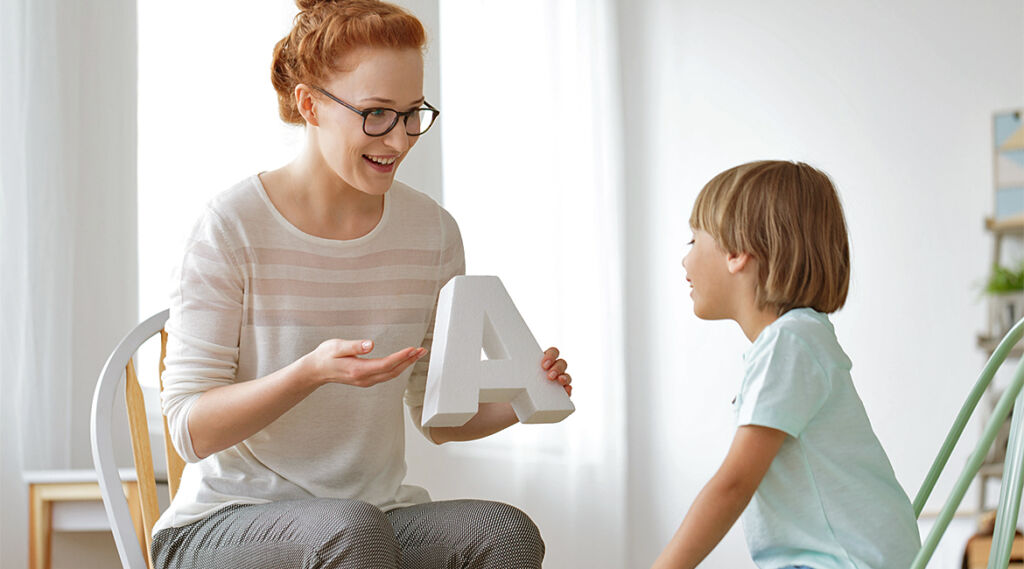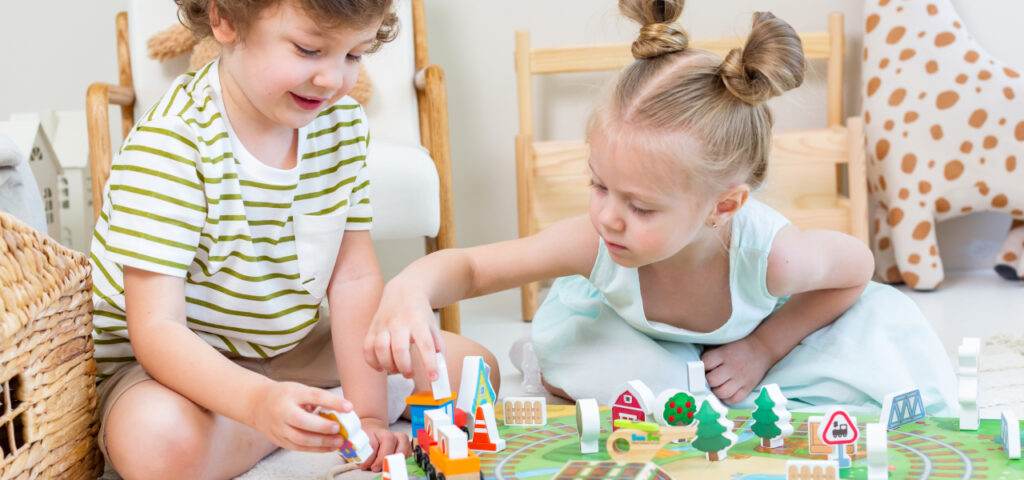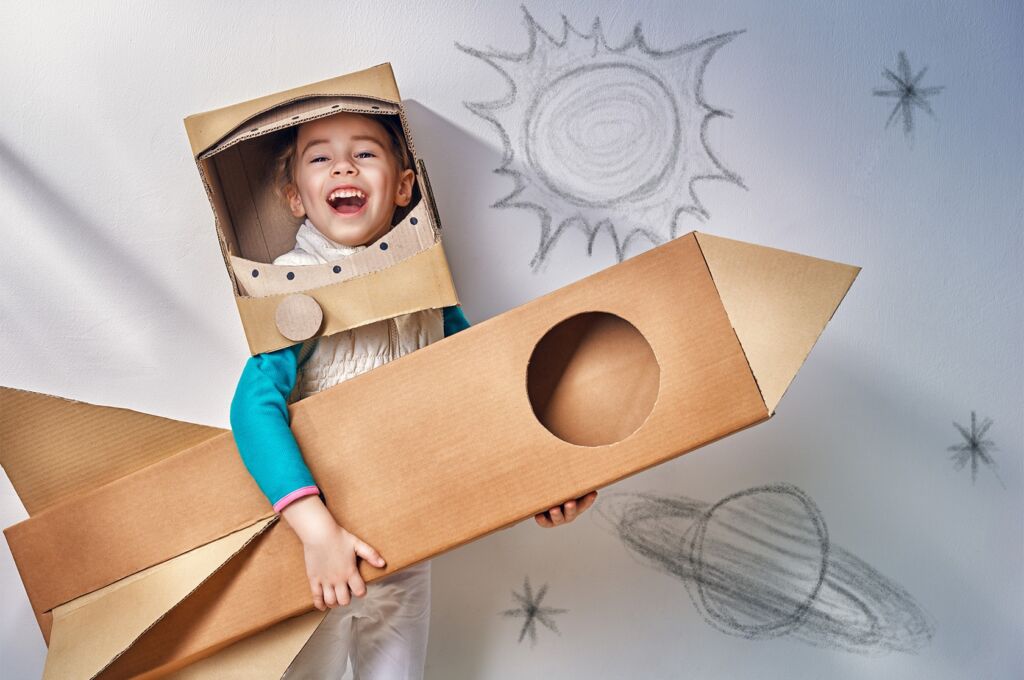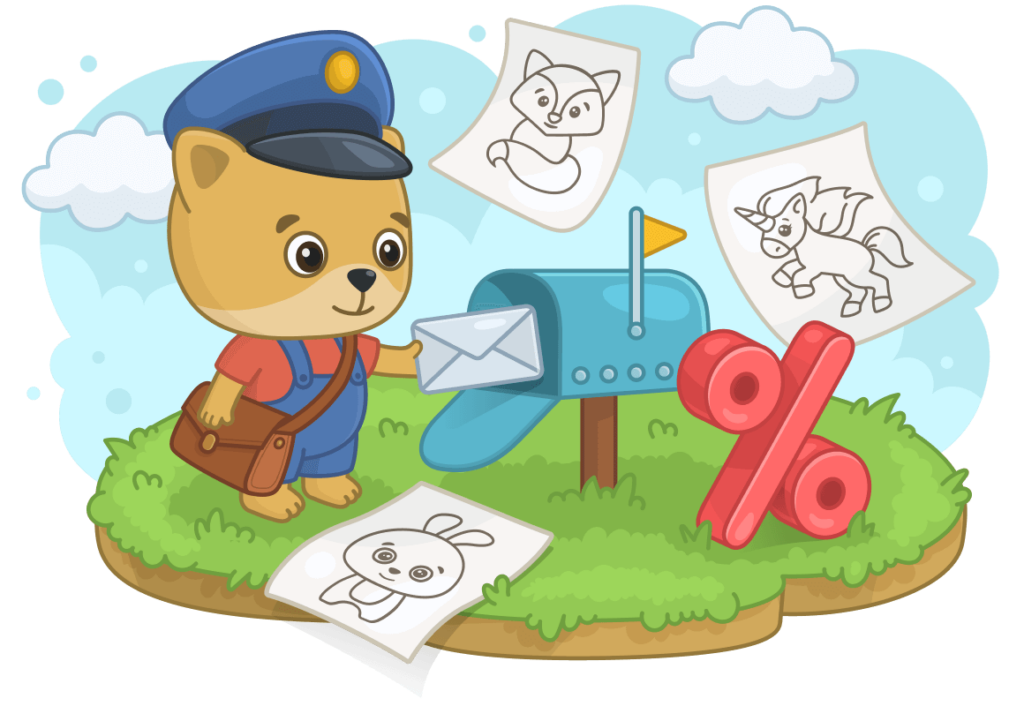Cultivating your little one’s creativity is one of the most valuable skills to nurture from the toddler age.
Creativity comes in various forms, ranging between dancing, reading, drawing, sculpturing and painting, writing, and imaginative play.
Often, people believe that resourcefulness and imaginative skills are in-built talents and not a skill taught from a young age.
However, with the right encouragement and environment, you can help babies build their innovative skills and at the same time freely express their imaginations.
Why is Improving Your Kid’s Creative Skills So Important?
As a parent, are you thinking, ‘Why the emphasis on creativity?’ ‘Does it matter if this skill is developed from childhood?’.
Creativity gives your children confidence and enables them to think of intelligent solutions and ways to share their ideas with people.
There are a lot of benefits from nurturing your toddler’s creativity and imagination. Here are three of these reasons below:
1. Increased Cognitive Abilities
Research shows that creative thinking helps the brain learn new concepts faster and improves its neural connections.
For instance, children with musical or artistic skills have links between the brain’s hemispheres, making them bright for their age.
2. Improved Mood and Overall Well-being
Creativity improves your child’s emotional health by teaching them to control changes in their mood and tantrums.
Children are more likely to be happy when focused on a creative activity or game.
4. Academic Success
Creativity is vital for children to ace academic hurdles. Creative kids are confident and hence develop a positive outlook towards complex subjects.
When children get stuck on confusing school work, they immediately finding creative ways to get answers.
In this way, thinking out of the box plays a vital role in their academic performance as your child gets a deeper understanding of the problem.
Tips on Developing Your Child’s Creativity
Many people assume that not all kids are equally creative based on the popular misconception that talent is inborn.
But actually, creativity is a core skill that parents can practice with their kids as it is a significant factor in ensuring their success in everything.
Every child can express themselves creatively as it is not a skill that needs inventing.
It is already present in them; you need to research the appropriate tools to develop their creativity and encourage them to express themselves freely.
Here are ten ways to aid your child stand out creatively:
1. Allow Them Find Their Way
Children love exploring things and new ideas personally, so do not always rush to solve their problems.
Allow them to figure how the world works on their own; this will give them the zeal to find creative solutions to problems around them.
2. Read Together
Did you know that books improve children’s reading imagination and innovative skills?
Opt for colorful and problem-solving and make it a daily habit to read at least a chapter or practice questions.
Also, you can engage them with simple guessing games like what is the page number, etc., to make them improve their reading comprehension.
3. Give Access to Creative Play
Creative play works better in toddlers and preschoolers because restricting their activities to only a stack of toys is not advisable.
With colors building blocks, your child gets to create anything they imagine, which stimulates their motor and logic skills and visual-spatial ability.
Do not worry about the mess created during the duration of their game.
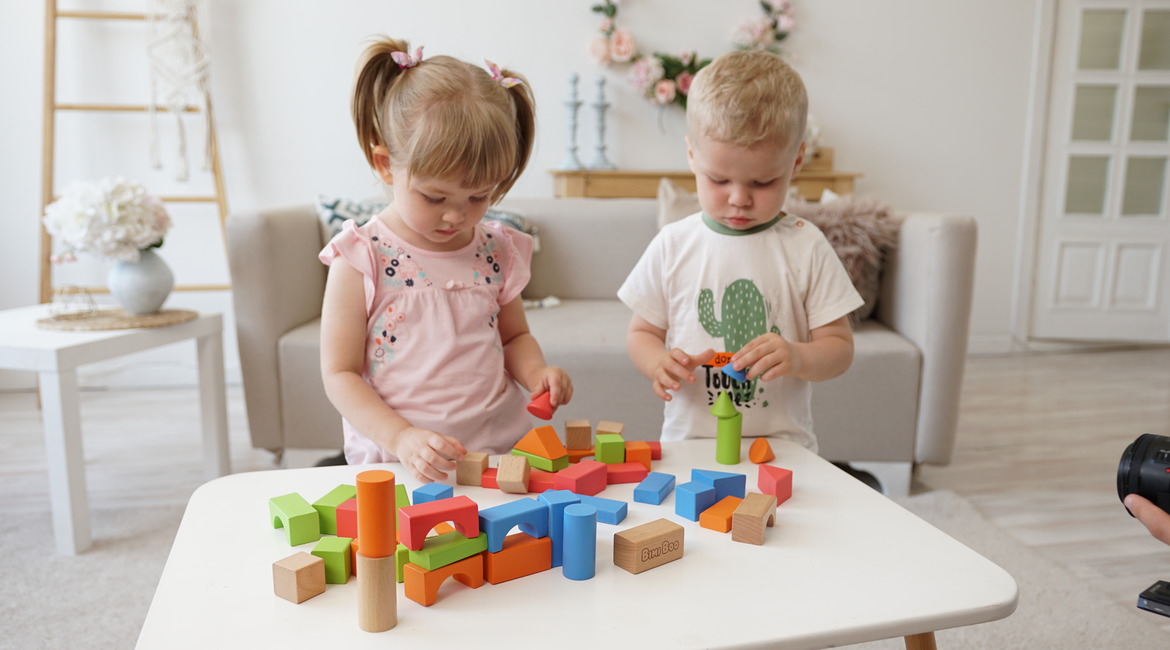
4. Encourage Exploration
There is no stipulated playtime or timetable, so allow your little ones to discover things they like without stifling them freely.
Through free will and you not caging them into time frames, within a short time, their creativity is developed.
5. Give Room for Out-of-the-box Ideas
Once in a while, seek your child’s input and emphasize that it is perfectly okay if they have different opinions.
Encourage your kids to ask questions and not just accept everything if they have reservations.
For instance, while painting a tree, ask them to suggest other alternative colors.
Also, ask questions like ‘Is there another method to solve this problem?’ or ‘How can you improve this skill next time?’.
Your job is to encourage them to use various tools to think up creative solutions to any problem.
6. Always Celebrate Your Kids
When children are passionate about anything, they will do their possible best to excel at it.
Hence, please get to know their hobbies or dream goal and help them attain them.
Every minor achievement or award celebrates the same way you would do the big and major ones as they put their all into it.
Please get to know your child’s creative dream, and help them to pursue it.
For example, if your child is learning ballet, spend an afternoon dancing together and celebrate their progress.
Cover your house with their medals or other creative outlets. If it is a new hobby like piano, spend a day playing the keyboard together and celebrate them.
7. Let Them Scatter Things
A vital tip to foster creativity in your toddlers is to give them the outlet to express themselves even if they get messy in the process.
Growing kids need enough space to play or reasonably scatter things around during their creative periods.
You can dedicate a particular area in the house if you are not comfortable with the mess all over your place.
8. Have Unstructured Time
Most times, creativity sparks when children are left alone, which is why a structured playtime stifles them.
Sometimes, kids can feel limited with a fixed hour set out just for games and activities.
So, give your kids some alone time, even if it is just a couple of hours in a day. It encouraged them to have an imaginative mindset.
After all, creativity needs adequate room to breathe.
9. Show Your Creativity
Children pick things up fast and learn from people around them. So, if you are a creative person, there is a high likelihood they will do the same.
Create something and teach them that there are different ways of expressing their creativity.
Demonstrate to them that anyone can be creative whenever you involve them in your creative process.
Conclusion
With creativity in children, it is essential to build a space to ask questions and branch out into new hobbies without any restriction.
The growth of children’s minds is essential, and creativity is one way of achieving this.
So, you have to be patient when nurturing them because it encourages them to think outside the box.
